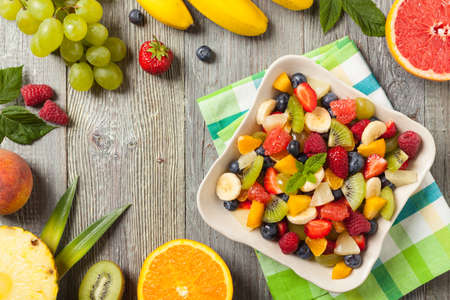Understanding British Vegan Nutrition
The rise of veganism in the UK reflects not only growing ethical and environmental awareness but also a shift in health consciousness. However, embracing a plant-based diet within the context of British culture presents unique nutritional challenges. Traditional British cuisine often centres around meat, dairy, and fish, with comfort foods like roast dinners, full English breakfasts, and classic puddings being mainstays. For vegans navigating this food landscape, the transition can mean more than simply swapping out animal products; it requires a thoughtful approach to ensure nutritional adequacy. Key concerns for British vegans often include obtaining enough vitamin B12, iron, calcium, omega-3 fatty acids, iodine, and protein. The local food scene is evolving rapidly, with supermarkets and restaurants now offering an expanding range of vegan options. Still, many ready-made vegan products are highly processed or lack fortification with essential micronutrients. Furthermore, typical eating habits—such as reliance on sandwiches or quick meals—can make it challenging to maintain a balanced diet. Understanding these distinct aspects of the British vegan experience is crucial for identifying both potential pitfalls and practical solutions for achieving optimal nutrition.
Key Nutrient Gaps Among British Vegans
Adopting a vegan diet in Britain brings undeniable benefits for animal welfare and the environment, but it also presents several nutritional challenges. Many British vegans face difficulties obtaining adequate amounts of certain essential nutrients that are more readily found in animal-derived foods. Recognising these gaps is crucial for maintaining long-term health and well-being on a plant-based diet.
Commonly Lacking Nutrients
Among the most frequently lacking nutrients in British vegan diets are vitamin B12, iron, omega-3 fatty acids, and iodine. Each plays a critical role in bodily functions, and deficiencies can lead to significant health concerns if not addressed proactively.
| Nutrient | Main Functions | Potential Consequences of Deficiency | Common Vegan Sources |
|---|---|---|---|
| Vitamin B12 | Nerve function, red blood cell formation | Fatigue, nerve damage, anaemia | Fortified cereals, plant milks, supplements |
| Iron | Oxygen transport, immune function | Anaemia, weakness, impaired cognition | Lentils, beans, tofu, fortified foods (best absorbed with vitamin C) |
| Omega-3 Fatty Acids (ALA, EPA, DHA) | Brain health, cardiovascular function | Poor cognitive performance, heart issues | Chia seeds, flaxseeds, walnuts, algae-based supplements |
| Iodine | Thyroid hormone production | Goitre, hypothyroidism, developmental delays in children | Iodised salt, seaweed (British seaweed may be unreliable due to varying content) |
The Uniquely British Context
The British climate and soil composition impact local food iodine levels and the availability of fresh produce year-round. For example, UK-grown vegetables often contain less iodine compared to other regions. Additionally, while seaweed is a popular source of iodine among vegans globally, some native British seaweeds have unpredictable iodine content or may not be widely available outside speciality shops. This makes supplementation or the use of iodised salt especially relevant in the UK context.
![]()
3. Seasonal and Local Food Choices
One of the unique aspects of following a vegan diet in the UK is the opportunity to embrace locally grown, seasonal produce. The British climate offers a diverse range of fruit and vegetables throughout the year, but it also presents some nutritional challenges for vegans who aim to eat both healthily and sustainably. Sourcing nutrient-rich foods that are grown close to home not only supports local farmers but can also help reduce the environmental impact associated with food transport.
However, seasonal changes significantly affect what is readily available. For example, during the autumn months, root vegetables such as carrots, parsnips, and swedes are abundant and can be excellent sources of vitamins and minerals. In contrast, spring brings fresh greens like spinach, kale, and asparagus—important for iron and folate intake. Yet, in winter, the variety narrows, making it more challenging to meet certain nutritional needs, particularly for vitamin C and leafy greens.
British vegans can address these challenges by planning meals around the changing seasons and preserving surplus produce through freezing or pickling when harvests are plentiful. Exploring local farmers’ markets and veg box schemes can introduce lesser-known British crops such as purple sprouting broccoli or Jerusalem artichokes, which are both nutritious and environmentally friendly choices. Additionally, growing your own herbs or salad leaves—even on a windowsill—can provide fresh options year-round.
By focusing on what is grown locally and in season, British vegans can maintain a varied and balanced diet while reducing reliance on imported foods that may have a higher carbon footprint. This approach requires flexibility and creativity in meal planning but supports both personal nutrition and broader environmental goals.
4. Vegan Supplements and Fortified Foods
While a well-planned vegan diet can offer many health benefits, certain nutrients are challenging to obtain in sufficient quantities from plant sources alone. In the UK, a variety of supplements and fortified foods are available to help vegans maintain optimal nutritional status. Understanding which products are most effective and widely used can make a significant difference in ensuring a balanced diet.
Common Supplements for British Vegans
The following table outlines the key supplements frequently recommended for vegans in the UK, their purposes, and typical sources:
| Supplement | Main Purpose | Notes |
|---|---|---|
| Vitamin B12 | Supports nerve function, red blood cell formation | Essential; not found naturally in plants |
| Vitamin D (D2 or vegan D3) | Bone health, immune support | D3 usually from lichen for vegan suitability |
| Omega-3 (ALA, EPA, DHA) | Brain and heart health | Algae oil is the primary vegan source |
| Iodine | Thyroid function | Kelp or seaweed tablets (use with caution) |
| Iron | Prevents anaemia, supports energy levels | Sourced as ferrous fumarate or bisglycinate for better absorption |
Fortified Foods Readily Available in the UK
Besides supplements, fortified foods play a crucial role in helping vegans meet their daily nutrient requirements. British supermarkets commonly stock the following options:
- Plant-based milks (soya, oat, almond): Often fortified with calcium, vitamin B12, and vitamin D.
- Breakfast cereals: Many varieties are enriched with iron, folic acid, and B vitamins.
- Margarines and spreads: Selected brands add vitamin D and B12.
- Nutritional yeast: A popular ingredient among vegans for its cheesy flavour and B12 content.
- Meat alternatives: Some contain added iron and vitamin B12 to mimic meat nutrition profiles.
A Practical Approach to Supplementation and Fortification
The British Nutrition Foundation and NHS recommend regular use of both supplements (especially B12 and vitamin D) and fortified products as part of a balanced vegan diet. While whole foods should form the basis of meals, these additional sources are invaluable insurance against deficiencies in the UK climate, where sunlight exposure is limited for much of the year.
5. Eating Out as a Vegan in the UK
Dining out as a vegan in the UK has become increasingly accessible, yet it still presents unique nutritional challenges. While high street chains and independent cafes now often feature vegan menus or marked options, these dishes can vary significantly in their nutritional value. Many offerings lean heavily on processed meat substitutes, chips, or carb-heavy meals, which may lack essential nutrients such as protein, iron, and vitamin B12.
Review of Vegan Options When Eating Out
Most major UK cities boast at least a few dedicated vegan or vegetarian restaurants, with London, Manchester, Bristol, and Edinburgh leading the way. High street brands like Pret A Manger, Wagamama, and Leon provide a decent selection of plant-based choices. Pub chains such as Wetherspoons have also increased their vegan-friendly options. However, when travelling or eating in more rural areas, choices may be limited to basic salads, chips, or baked beans on toast. Supermarkets and convenience stores offer ready-to-eat vegan sandwiches, wraps, and snack pots for those on the go.
Common Nutritional Gaps When Dining Out
Despite the growing number of options, dining out can make it difficult to maintain balanced nutrition. Restaurant meals tend to be higher in salt and saturated fat while lacking diversity in plant proteins (such as lentils or tofu) and sources of iron or omega-3s. Calcium-fortified plant milks are rare outside coffee shops, and vitamin B12 is rarely included unless you specifically seek fortified products.
Practical Advice for Balanced Nutrition
If you’re eating out frequently or grabbing food on the go, keep these practical strategies in mind:
- Scan menus for dishes containing beans, lentils, chickpeas, tofu or tempeh for better protein content.
- Add sides like steamed vegetables or salads to increase your fibre and micronutrient intake.
- If possible, choose wholegrain bread or rice over white varieties for improved iron and B vitamin content.
- Carry portable snacks such as mixed nuts, seeds, dried fruit or protein bars to top up your nutrition when options are limited.
- Don’t hesitate to ask staff about ingredients or request simple modifications – most places are now familiar with accommodating dietary requests.
In summary, while eating out as a vegan in the UK is easier than ever before, maintaining balanced nutrition still requires some forward planning and conscious choices. A little preparation ensures you enjoy both the flavours of British cuisine and good health on your vegan journey.
6. Practical Tips for Everyday Meal Planning
Meal Planning for Balance and Variety
Effective meal planning is essential for British vegans striving to meet all their nutritional needs. Start by mapping out meals for the week, ensuring each day includes sources of protein, iron, calcium, vitamin B12, and omega-3 fatty acids. Rotating staple foods such as oats, lentils, chickpeas, tofu, and whole grains helps prevent monotony and covers a broad spectrum of nutrients. Don’t forget classic British produce like carrots, kale, parsnips, and potatoes—these are affordable and nutrient-rich additions to any vegan meal plan.
Shopping Smart: Local and Seasonal Choices
When shopping, focus on locally grown and seasonal produce from British markets or farm shops. Not only does this support local agriculture, but it also ensures fresher ingredients and can save money. Stock up on tinned beans, pulses, fortified plant milks (look for those with added B12 and calcium), and wholemeal bread. Read labels carefully; some supermarket products may contain hidden animal-derived ingredients such as whey or gelatine. Apps and online resources can help identify vegan-friendly brands commonly found in the UK.
Cooking Techniques to Maximise Nutrition
Simple cooking methods like steaming vegetables or using minimal oil in stir-fries help retain vitamins while reducing unnecessary fat intake. Batch-cooking soups, curries, and stews allows you to incorporate a variety of beans and vegetables while saving time during busy weeks. Try experimenting with herbs like parsley and coriander or classic British spices such as mustard powder to enhance flavour without relying on salt.
Convenient On-the-Go Options
For days when time is limited, keep easy options on hand: overnight oats with flaxseeds for breakfast, nut butter sandwiches on wholemeal bread for lunch, or a ready-to-eat salad with chickpeas from your local supermarket. Many high street chains now offer vegan meal deals—just check for adequate protein content and opt for fruit or nuts as snacks rather than processed items.
Staying Motivated and Informed
Joining local vegan groups or social media communities can provide recipe inspiration tailored to British tastes, highlight new products hitting the shelves, and offer practical advice based on shared experience. Keep learning about nutrition through reputable UK-based resources such as The Vegan Society or NHS Eatwell Guide. With thoughtful planning and awareness of local resources, achieving a balanced vegan diet in Britain is not only possible but enjoyable.

